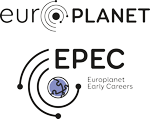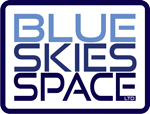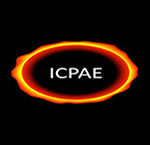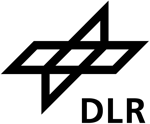List of exhibitors & sponsors
Exhibitors

|
The International Planetary Data Alliance (IPDA) was founded 16 years ago as a closely cooperating partnership among national planetary archives across the globe.
The IPDA members have a common goal to maintain and improve the quality and interoperability of planetary data archives through common standards and formats.
The IPDA promotes international use and reuse of high-quality scientific data across its member archives.

|
Europlanet is a distributed research infrastructure and membership organisation to support the planetary science community. We offer services developed and optimised over nearly 20 years, including expert exchanges, research visits to facilities and field sites, remote access to laboratories and telescopes, training, mentoring, funding, bursaries and prizes. We are the parent organisation of the Europlanet Science Congress (EPSC), Europe’s largest annual meeting on planetary science.
The Europlanet Early Career (EPEC) network is the official entity representing early careers in the Europlanet Society. One of EPEC's main objectives is to build a strong network between young professionals by organising early-career-related events and engaging in various activities, such as outreach and diversity. Find out more about how to get involved with EPEC@EPSC2024.
The Europlanet Early Career (EPEC) network is the official entity representing early careers in the Europlanet Society. One of EPEC's main objectives is to build a strong network between young professionals by organising early-career-related events and engaging in various activities, such as outreach and diversity. Find out more about how to get involved with EPEC@EPSC2024.

|
Founded in 1660, The Royal Society is a charitable organisation based in the UK which recognises, promotes, and supports excellence in science. Its journals – Proceedings A, Royal Society Open Science and Philosophical Transactions A - offer
publishing options for research, reviews and theme issues within the planetary sciences. To find out more, visit our exhibition booth or our website at royalsociety.org/journals.

|
Blue Skies Space is pioneering a new model to deliver high-quality space science data in accelerated timescales to the global scientific community to enable them to
answer humanity’s greatest scientific questions. Through a fleet of low-Earth orbit satellites, we aim to serve the demand for high-quality science data across many
research areas including the monitoring of stars, understanding the atmospheres of exoplanets and the composition of asteroids in the Solar System.

|
The European Space Agency (ESA) is dedicated to the peaceful exploration and use of space for the benefit of everyone. Established in 1975,
it now has 22 Member States and for more than 45 years has promoted European scientific and industrial interests in space. ESA maintains a world-leading Science
Programme with missions in heliophysics, planetary science, astrophysics, and fundamental physics.

|
NoRCEL’s primary aim is to bring together people from various disciplines to investigate one of the most fundamental questions in science:
how life began.This network of scientists investigates some of the multi-faceted aspects and challenges facing the scientific world. This has led
to our more recent missions into exploring global issues, as with Blue Earth Project, as well as developing educational tools in an endeavour to
enable wider access to astroscience, especially in the Global South.

|
The "Museum für Naturkunde – Leibniz Institute for Evolution and Biodiversity Science" is an integrated research museum within the Leibniz Association.
It is one of the most important research institutions worldwide in the areas of biological and geological evolution and biodiversity, and it is also a
centre for citizen science. The collection comprises over 30 million items covering zoology, palaeontology, geology and mineralogy and is of highest scientific
and historical importance.

|
Freie Universität Berlin is one of Europe's leading research universities. Our scope is global – people from more than 150 countries around the world work and study at Freie Universität. Our alumni actively help to shape the world today, and opportunities to study and work abroad are woven into our university culture. At Freie Universität Berlin, this international focus is reflected in our research, teaching, and day-to-day lives. It has been an integral part of our history since 1948.
Sponsors
International Commission on Planetary Atmospheres and their Evolution (ICPAE) | https://www.iamas.org/icpae/

|
The International Commission on Planetary Atmospheres and their Evolution (ICPAE) is one of the ten commissions of the International Association of Meteorology and Atmospheric Sciences (IAMAS), which is in turn part of the International Union of Geodesy and Geophysics (IUGG). ICPAE promotes scientific research into the field of planetology in general and in particular of atmospheres found in planetary systems (including comets) and their evolution.
Space: Science & Technology, a Science Partner Journal | https://spj.science.org/journal/space | @SPJournals

|
Open Access journal Space: Science & Technology, published in association with Beijing Institute of Technology (BIT), promotes the interplay of science and technology for the benefit of all application domains of space activities. It particularly welcomes articles illustrating successful synergies in space programs and missions.
Supporters

|
DLR is the national aeronautics and space research centre of the Federal Republic of Germany. Its extensive research and development work in aeronautics, space, energy, transport and security is integrated into national and international cooperative ventures.